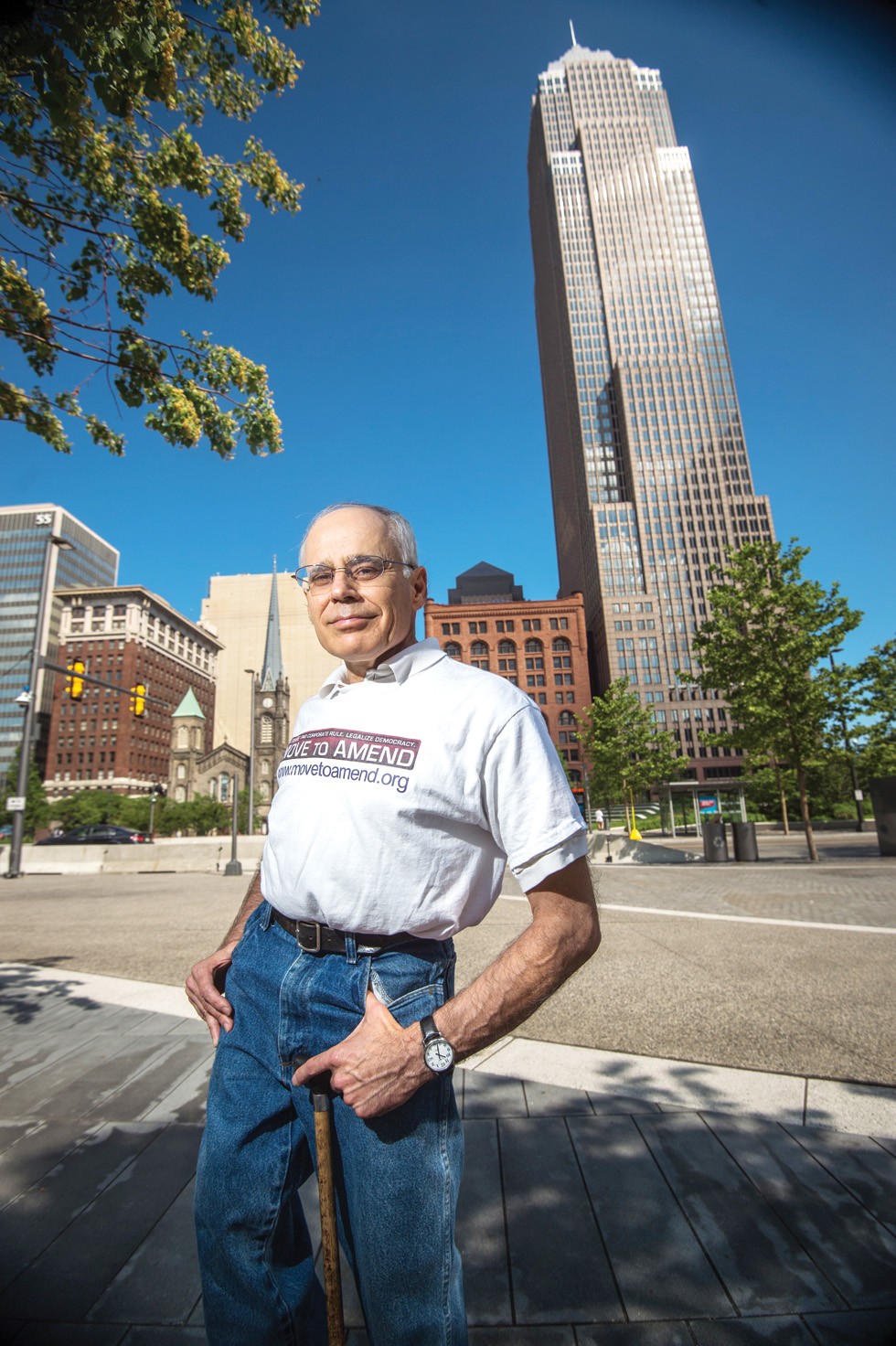"The problem isn't that the government is broken," Greg Coleridge says, whipping out one of many activist slogans he's been repeating so long they're inextricably threaded into the fabric of his speech. "It's that it's fixed."
"Fixed as in rigged," he says, leaning in, making sure the message is clear. Coleridge's central issue is corporate power and the insidious effects of money in politics. He is a man who has known that corporations aren't people since long before Citizens United.
Citizens United was the 2010 Supreme Court ruling that held that money was a form of speech, and that capping corporations' campaign contributions was an unconstitutional infringement of their First Amendment rights. It facilitated a massive growth in Super PACs.
"But it was a perverted kind of blessing," says Coleridge, clipboard in hand, seated at the Cleveland Heights Public Library with a smattering of activist literature in front of him. "It made people wake up. They might not realize, though, that this is nothing new. This has been going on for 125 years."
Coleridge, an Akron native and Oberlin College alum, now works for Move to Amend, a national coalition formed in 2009 committed to social and economic justice, ending corporate rule, and building a vibrant democracy that's accountable to people, not corporations. He's been doing this genre of work for years.
For example:
"This is from 1996," Coleridge says, referencing a 96-page Citizens Over Corporations pamphlet he authored for the Program on Corporations, Law and Democracy (POCLAD) as a by-product of a meeting with frustrated activists. Back then, and until earlier this year, Coleridge was the program director for economic and political justice with the American Friends Service Committee.
"I'd done work with non-violence campaigns," Coleridge says, "but quite frankly, we ended up evolving — or some might say devolving — into looking at issues of democracy and corporate power in politics."
Coleridge has worked locally to get 12 Ohio municipalities to pass resolutions asking congress to pass an amendment to the U.S. Constitution that would state two things: 1) Only humans, not corporations, are legal persons, and 2) money is not equivalent to speech.
"The reason we're so frustrated, why we're literally banging our heads against the wall," Coleridge says, "is because there are a lot of fruits and vegetables you can boycott one at a time. But we don't have enough time. We have to look at the fundamentals — and the analysis shows that the overarching problem is the increasing power and rights of corporations."
Coleridge says that he sees many local activists doing critical work — in labor, consumer protection, the environment, etc. — and even remembered fondly his week in Seattle in 1999 protesting the World Trade Organization. He said that to this day, there has been nothing more liberating than shutting down those Seattle streets. But he said activists need to focus on corporate power or else their progress will be limited.
"I'm not saying drop everything. This doesn't need to be your No. 1 issue," Coleridge says. "But maybe make it No. 2." — Sam Allard


